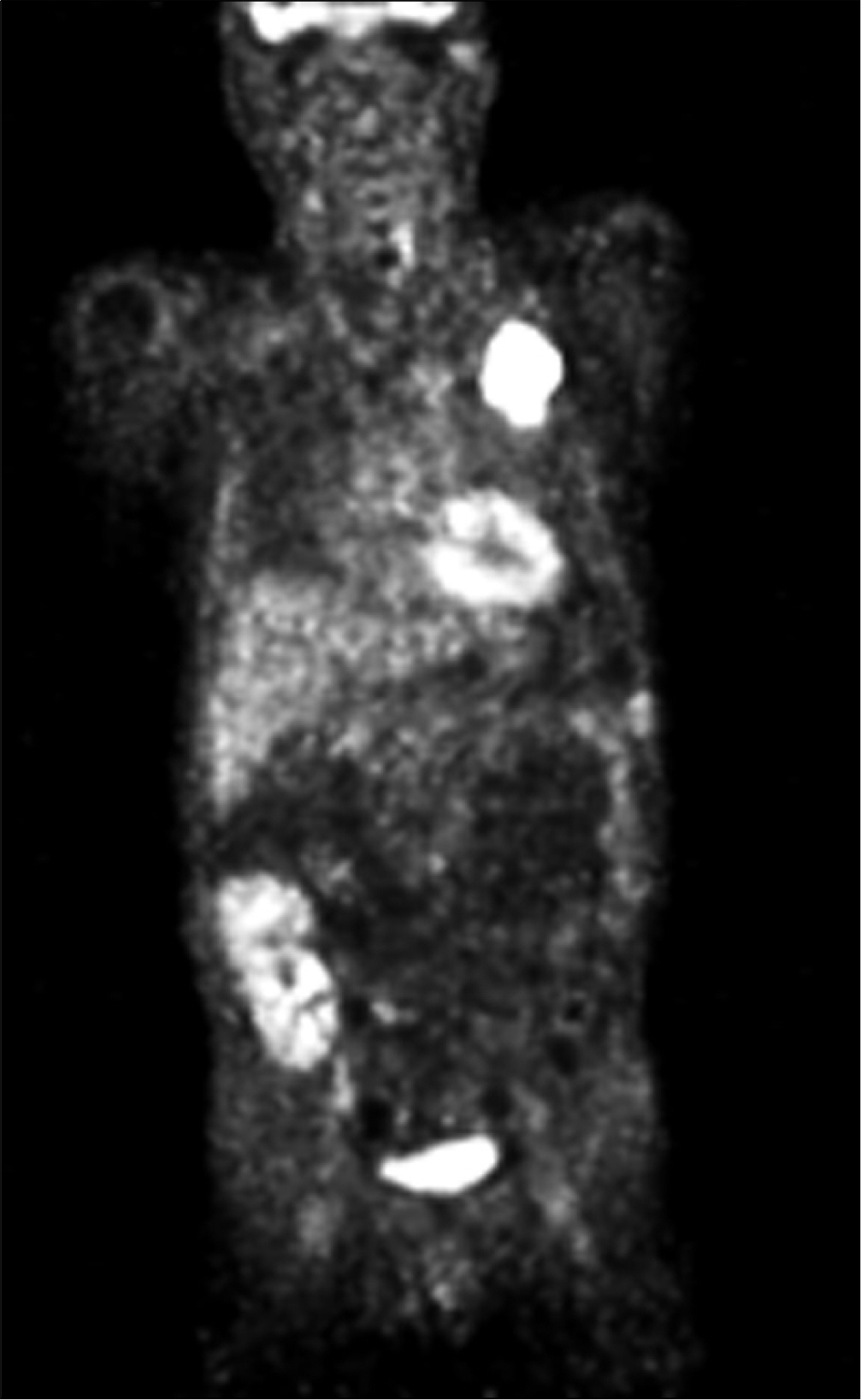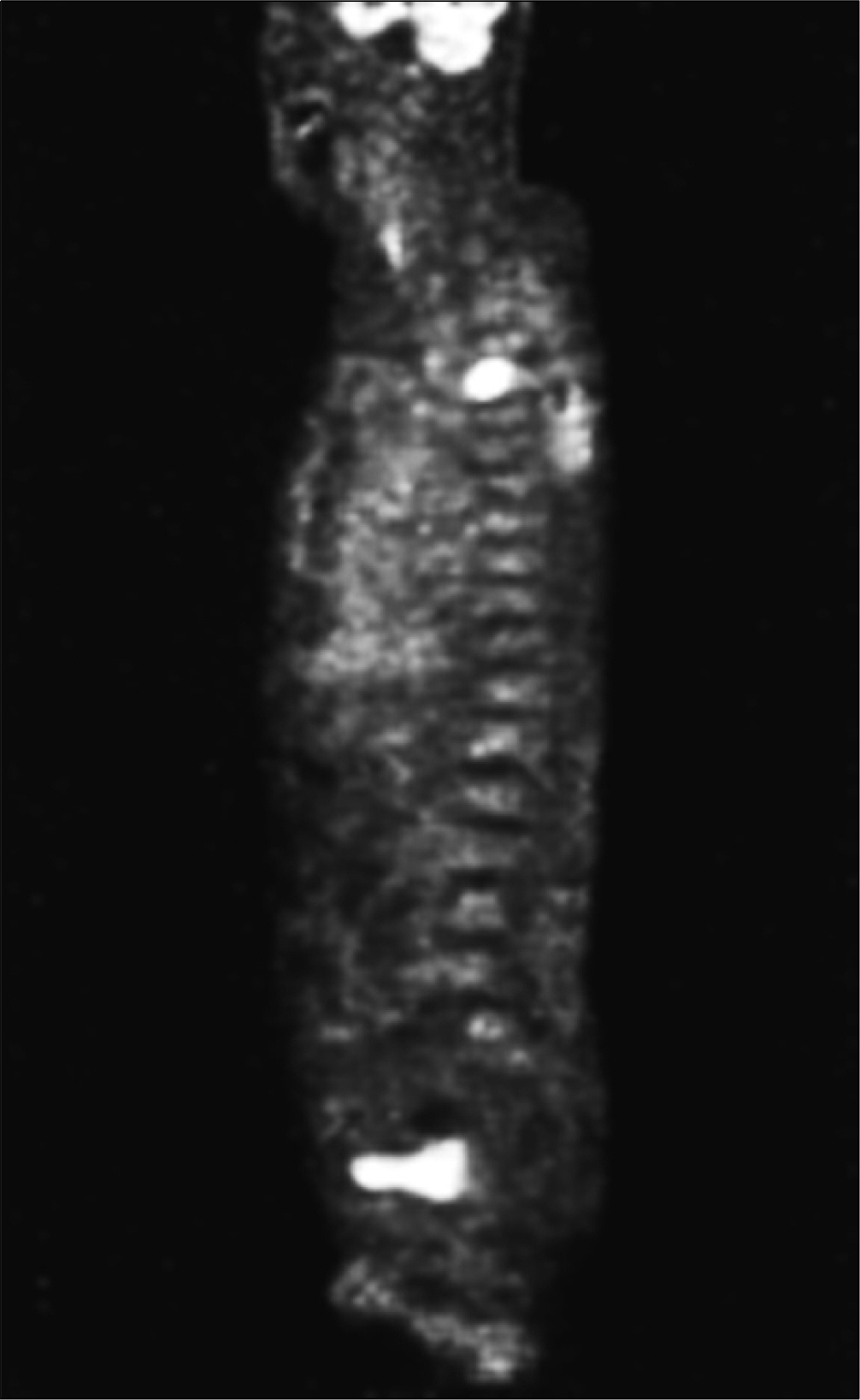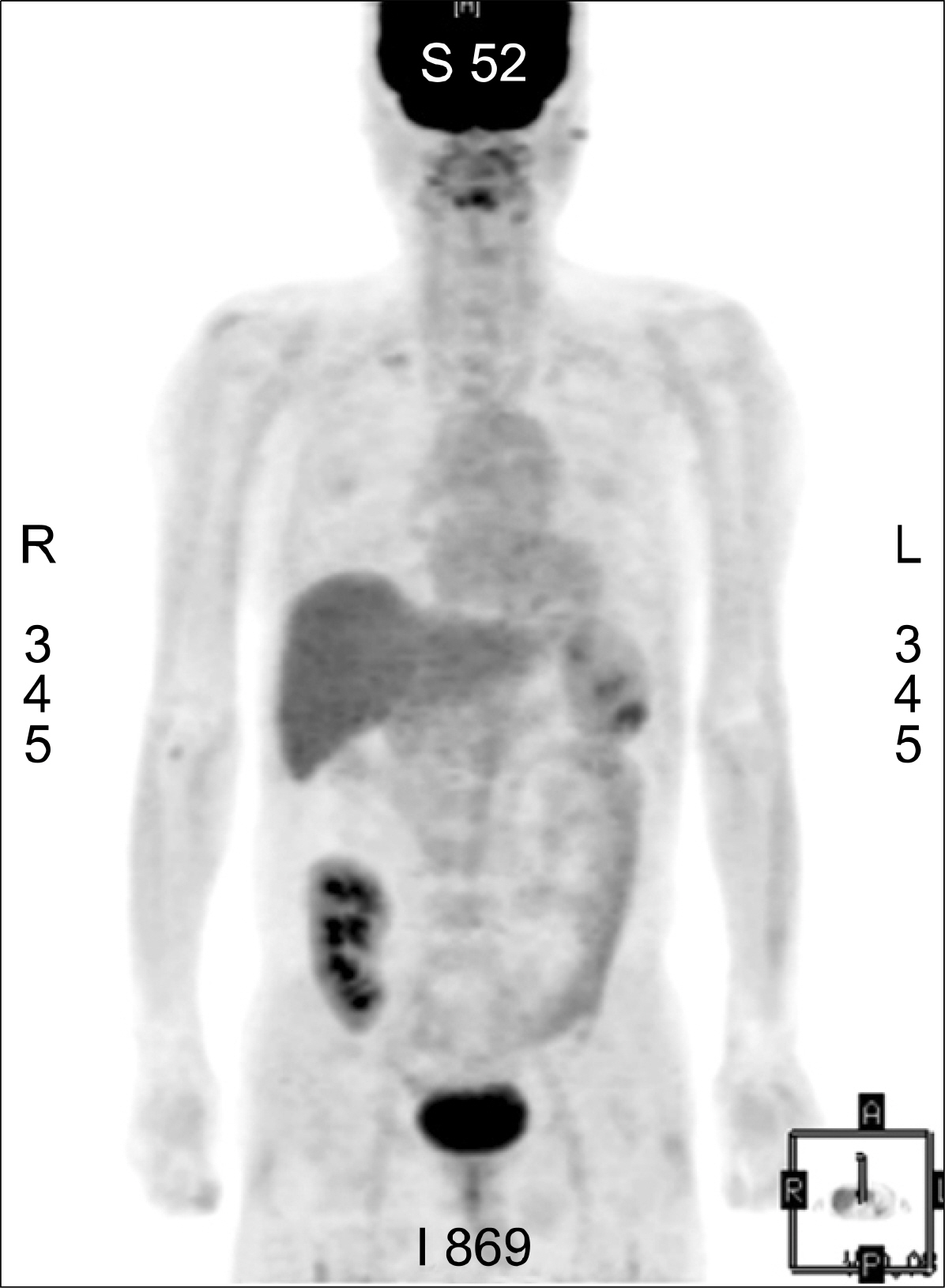Korean J Hematol.
2008 Jun;43(2):106-112. 10.5045/kjh.2008.43.2.106.
A Case Report of Posttransplant Lymphoproliferative Disorders Successfully Treated with R-CHOP in Korea
- Affiliations
-
- 1Department of Internal Medicine, Yonsei University College of Medicine, Seoul, Korea. minbrmmd@yumc.yonsei.ac.kr
- KMID: 2252203
- DOI: http://doi.org/10.5045/kjh.2008.43.2.106
Abstract
- Posttransplant lymphoproliferative disorder (PTLD) is a group of heterogeneous lymphoid diseases that cause serious complications after organ or stem cell transplantation. The onset of PTLD is mostly due to EBV infection-induced B-cell proliferation and a defect in cytotoxic T cell function that occurs with immunosuppression. The usual treatment strategy for PTLD is reduction or withdrawal of immunosuppressive drugs with or without the administration of antiviral agents. Recently, various studies on the efficacy of rituximab or chemotherapy have been reported. We report two cases of rapidly progressing and complicated PTLDs after kidney transplantation that were successfully treated with a combination regimen consisting of rituximab, cyclophosphamide, adriamycin, vincristine and prednisolone (R-CHOP).
Keyword
MeSH Terms
-
Antibodies, Monoclonal, Murine-Derived
Antiviral Agents
B-Lymphocytes
Cyclophosphamide
Doxorubicin
Herpesvirus 4, Human
Immunosuppression
Kidney Transplantation
Korea
Lymphoproliferative Disorders
Prednisolone
Stem Cell Transplantation
Vincristine
Rituximab
Antibodies, Monoclonal, Murine-Derived
Antiviral Agents
Cyclophosphamide
Doxorubicin
Prednisolone
Vincristine
Figure
Cited by 1 articles
-
Post-transplant Lymphoproliferative Disorder in Transplanted Kidney Causing Urinary Tract Obstruction
Hyeoncheol Park, Jae Seok Kim, Jee Hyun Kong, Sung Hoon Kim, Sang Wook Park, Shin Han Song, Jae Won Yang, Byoung Geun Han, Seung Ok Choi
J Korean Soc Transplant. 2016;30(1):44-49. doi: 10.4285/jkstn.2016.30.1.44.
Reference
-
1). Loren AW., Porter DL., Stadtmauer EA., Tsai DE. Post-transplant lymphoproliferative disorder: a review. Bone Marrow Translpant. 2003. 31:145–55.
Article2). Tsai DE., Hardy CL., Tomaszewski JE, et al. Reduction in immunosuppression as initial therapy for posttransplant lymphoproliferative disorder: analysis of prognostic variables and long-term follow-up of 42 adult patients. Transplantation. 2001. 71:1076–88.3). Curtis RE., Travis LB., Rowlings PA, et al. Risk of lymphoproliferative disorders after bone marrow transplantation: a multi-institutional study. Blood. 1999. 94:2208–16.4). Avolio AW., Agnes S., Barbarino R, et al. Posttransplant lymphoproliferative disorders after liver transplantation: analysis of early and late cases in a 255 patient series. Transplant Proc. 2007. 39:1956–60.
Article5). Kim SC., Jang HJ., Yoo ES., Han DJ. Posttransplant lymphoproliferative disease (PTLD) following renal transplantation. J Korean Soc Transplant. 1997. 11:337.6). Park JH., Park SJ., Kim CK, et al. Two cases of post-transplantation lymphoproliferative disorders in recipients of liver transplantation. Korean J Med. 1999. 56:399–402.7). Choi SH., Hahn JS., Kim YS., Park K. Four cases of posttransplant lymphoproliferative disease (PTLD) following renal transplantation. J Korean Soc Transplant. 2000. 14:101–8.8). Lee CH., Choi NW., Kim GH., Kang CM., Kwon OJ. Outbreak of posttransplant lymphoproliferative disorder (PTLD) in a single center. J Korean Soc Transplant. 2004. 18:188–93.9). Jang YS., Kim Y., Kim HJ. Two cases of post- transplantation lymphoproliferative disease (PTLD) following allogeneic lung transplantation. Korean J Med. 2003. 65(Suppl):S221–2.10). Park US., Choi CB., Kim IS, et al. A case of post-transplantation lymphoproliferative disease developed in renal transplant recipient and treated with rituximab. Korean J Med. 2004. 67:94–9.11). Kim SW., Sung SA., Jo SK., Cho WY., Kim HK., Won NH. NK/T-cell lymphoma involving multiple organs in renal transplant recipient. Korean J Nephrol. 2004. 23:358–62.12). Choi ST., Kim KH., Kim KK., Lee SG., Lee JN. Severe acute rejection developed in posttransplant lymphoproliferative disorder patient after discontinuing the immunosuppression. J Korean Soc Transplant. 2005. 19:79–84.13). Byun SW., Park HW., Song JH, et al. A case of diffuse large b-cell lymphoma in a kidney transplant recipient. Korean J Nephrol. 2006. 25:871–6.14). Park SH., Choi SM., Lee DG, et al. Clinical characteristics and outcomes of posttransplant lymphoproliferative disorders following allogeneic hematopoietic stem cell transplantation in Korea. J Korean Med Sci. 2006. 21:259–64.
Article15). Snow AL., Martinez OM. Epstein-Barr virus: evasive maneuvers in the development of PTLD. Am J Transplant. 2007. 7:271–7.
Article16). Tsai DE., Hardy CL., Tomaszewski JE, et al. Reduction in immunosuppression as initial therapy for posttransplant lymphoproliferative disorder: analysis of prognostic variables and long-term follow-up of 42 adult patients. Transplantation. 2001. 71:1076–88.17). Humar A., Hebert D., Davies HD, et al. A randomized trial of ganciclovir versus ganciclovir plus immune globulin for prophylaxis against Epstein-Barr virus related posttransplant lymphoproliferative disorder. Transplantation. 2006. 81:856–61.
Article18). Mamzer-Bruneel MF., Lomé C., Morelon E, et al. Durable remission after aggressive chemotherapy for very late post-kidney transplant lymphoproliferation: a report of 16 cases observed in a single center. J Clin Oncol. 2000. 18:3622–32.
Article19). Choquet S., Trappe R., Leblond V., Jäger U., Davi F., Oertel S. CHOP-21 for the treatment of post-transplant lymphoproliferative disorders (PTLD) following solid organ transplantation. Haematologica. 2007. 92:273–4.20). Elstrom RL., Andreadis C., Aqui NA, et al. Treatment of PTLD with rituximab or chemotherapy. Am J Transplant. 2006. 6:569–76.
Article21). Choquet S., Leblond V., Herbrecht R, et al. Efficacy and safety of rituximab in B-cell post-transplantation lymphoproliferative disorders: results of a pro-spective multicenter phase 2 study. Blood. 2006. 107:3053–7.
Article22). Gonzalez-Barca E., Domingo-Domenech E., Capote FJ, et al. Prospective phase II trial of extended treatment with rituximab in patients with B-cell posttransplant lymphoproliferative disease. Haematologica. 2007. 92:1489–94.
Article23). Tulpule S., Mikhaeel G., Kazmi M, et al. B cell post transplant lymphoproliferative disorder complicating solid organ transplantation (BPTLD): a single centre review reporting 1) results with chemo-immunotherapy (CHOP/R) and 2) the predictive ability of FDG-PET scanning to correlate with long term overall survival. Blood. 2005. 106:Abstract. 1500.
Article
- Full Text Links
- Actions
-
Cited
- CITED
-
- Close
- Share
- Similar articles
-
- Four Cases of Posttransplant Lymphoproliferative Disease (PTLD) Following Renal Transplantation
- Posttransplant Lymphoproliferative Disorder without Epstein-Barr Virus Presented as Small Bowel Perforation in Renal Transplant Recipient: A Case Report
- Posttransplant Lymphoproliferative Disease(PTLD) following Renal Transplantation
- A case of posttransplantation lymphoproliferative disease developed in renal transplant recipient and treated with rituximab
- A case of posttransplantation lymphoproliferative disorder in hematopoietic stem cell transplantation





